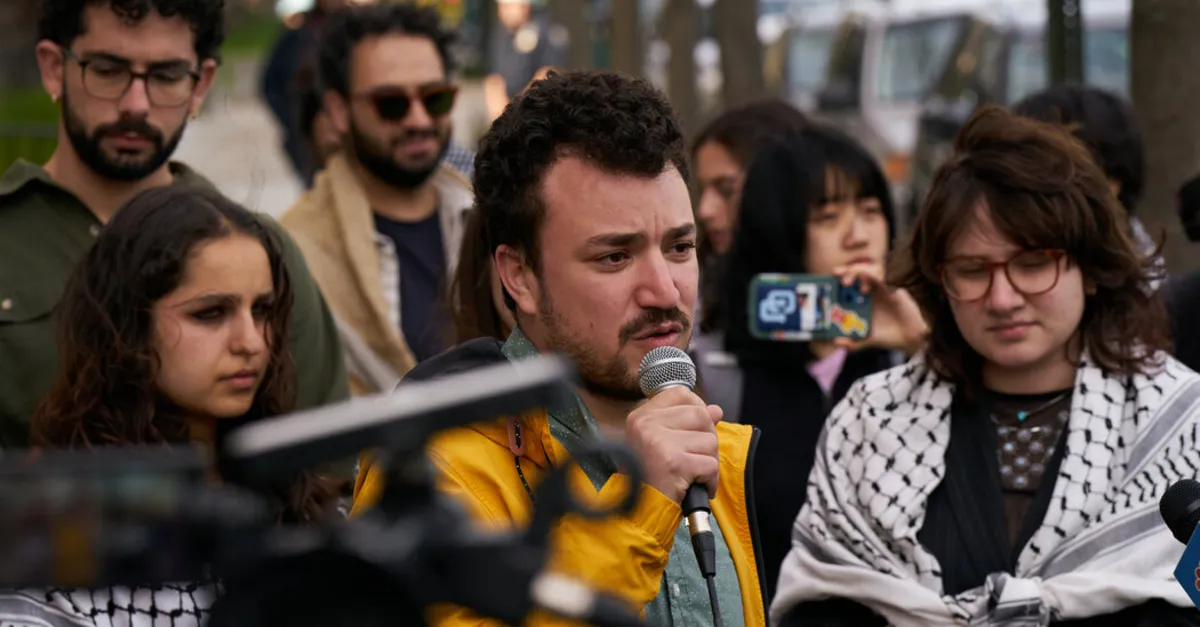
Last spring, Columbia University became a focal point for student activism as crowds of masked protesters gathered on the university lawns, voicing their opposition to the ongoing war in Gaza. This significant display of solidarity attracted attention from counterprotesters and journalists who surrounded the makeshift tent city that had been erected by the students. Among the sea of masked faces, one individual distinctly stood out: Mahmoud Khalil, a graduate student in his 20s.
Mahmoud, a Syrian immigrant of Palestinian descent, quickly emerged as a vocal and measured leader during the rallies and sit-ins. Often seen wearing a zip-up sweater, he participated in on-camera interviews with the media without a mask, making a bold statement in a sea of anonymity. In contrast, many of his fellow international students opted to wear masks, fearing that their visibility could jeopardize their student visas.
His decision to remain unmasked raised concerns for his wife, Noor Abdalla, a 28-year-old dentist from the Midwest. In a recent interview, she expressed her worries, stating, “We’ve talked about the mask thing. He always tells me, ‘What am I doing wrong that I need to be covering my face for?’” This sentiment highlights the personal risks faced by those who choose to take a stand in politically charged environments.
Mr. Khalil played a crucial role as a negotiator for the Columbia University Apartheid Divest coalition, which represents a broad spectrum of attitudes towards the protests, including varying approaches to violence and rhetoric. His decision to be openly visible as a leader in such a divisive movement would ultimately lead to significant consequences.
As his visibility grew, so did the scrutiny. Khalil was targeted by critics on social media, and on March 8, just seven weeks after the inauguration of Donald Trump, federal agents arrived at his home. He was taken into custody and subsequently moved to a detention center in Louisiana. Officials have described his detention as being linked to activities aligned with Hamas, an allegation that Khalil has vehemently denied.
Mahmoud Khalil's story sheds light on the complexities of student activism in America, especially for international students. Balancing the act of advocating for a cause while navigating personal and legal risks is a reality many protesters face. As this situation unfolds, it underscores the need for ongoing dialogue surrounding freedom of expression and the potential repercussions of vocal activism.